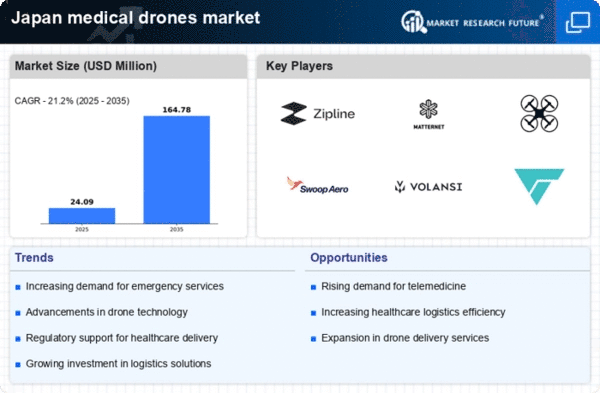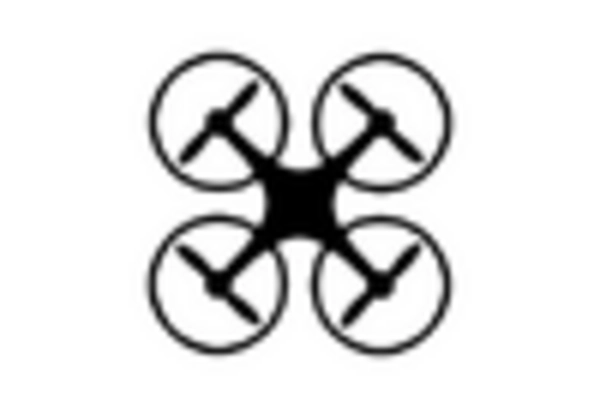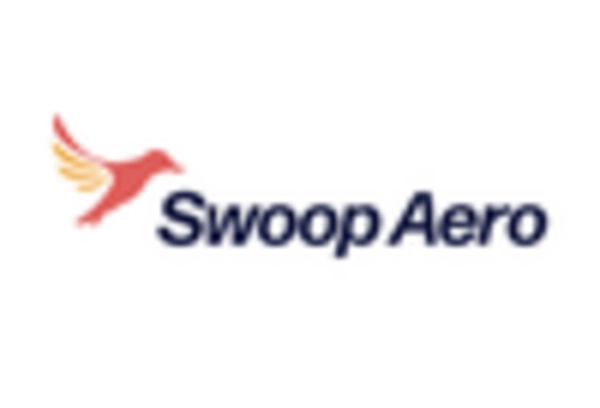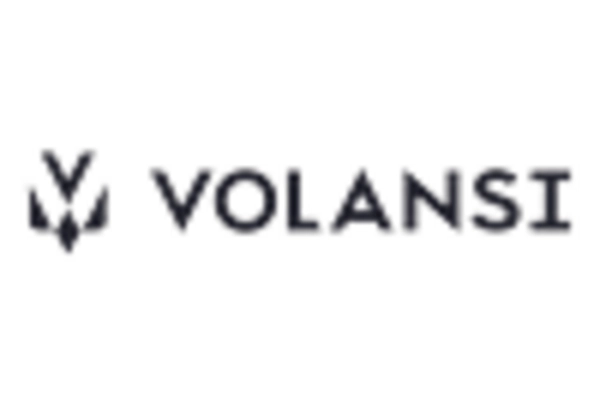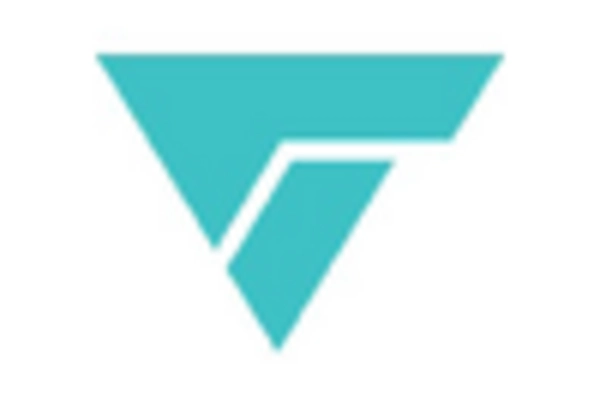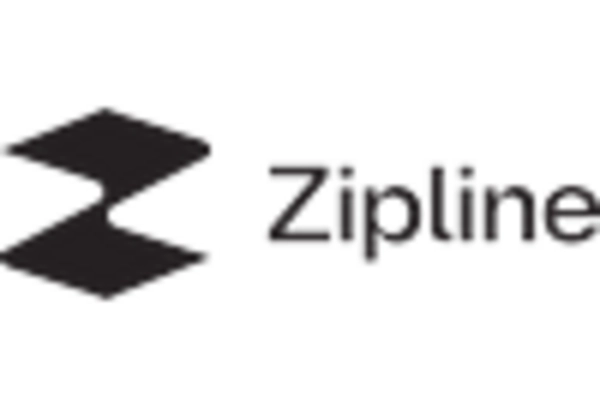Advancements in Drone Technology
Technological innovations are playing a crucial role in shaping the medical drones market in Japan. The development of advanced drone technologies, such as improved battery life, enhanced payload capacities, and sophisticated navigation systems, is enabling more efficient and reliable medical deliveries. For instance, drones equipped with AI and machine learning capabilities can optimize flight paths and ensure timely deliveries, which is essential in medical emergencies. The market is projected to grow at a CAGR of approximately 15% over the next five years, driven by these technological advancements. As manufacturers continue to innovate, the medical drones market is likely to expand, offering new solutions for healthcare logistics.
Government Initiatives and Funding
Government initiatives and funding are pivotal in advancing the medical drones market in Japan. The Japanese government has recognized the potential of drones in enhancing healthcare delivery and has initiated various programs to support their integration into the medical supply chain. Financial incentives and grants are being provided to healthcare organizations that adopt drone technology for logistics. This support is expected to stimulate market growth, as it lowers the financial barriers for healthcare providers. Additionally, the government is actively working on regulatory frameworks that facilitate the safe operation of drones in urban areas, which could further enhance the medical drones market.
Increasing Focus on Emergency Medical Services
The medical drones market in Japan is increasingly being influenced by a heightened focus on emergency medical services. Drones are being recognized for their potential to deliver critical medical supplies, such as blood, vaccines, and medications, to emergency sites rapidly. This capability is particularly vital in urban areas where traffic congestion can delay traditional delivery methods. Recent studies suggest that drones can deliver medical supplies within 30 minutes, significantly improving response times. As emergency medical services continue to evolve, the integration of drones is likely to become a standard practice, thereby driving growth in the medical drones market.
Rising Demand for Efficient Healthcare Delivery
The medical drones market in Japan is experiencing a notable surge in demand for efficient healthcare delivery systems. This is largely driven by the need to enhance access to medical supplies in remote and underserved areas. With Japan's aging population, the healthcare system faces increasing pressure to deliver timely medical assistance. Drones can potentially reduce delivery times significantly, with studies indicating that they can cut logistics time by up to 50%. As a result, healthcare providers are increasingly exploring the integration of drones into their supply chains, which is likely to bolster the medical drones market. Furthermore, the Japanese government has been supportive of initiatives that promote innovative healthcare solutions, further propelling the market's growth.
Public Awareness and Acceptance of Drone Technology
Public awareness and acceptance of drone technology are crucial factors influencing the medical drones market in Japan. As the general population becomes more familiar with the benefits of drones in healthcare, there is a growing acceptance of their use for medical deliveries. Educational campaigns and demonstrations have been instrumental in showcasing the efficiency and safety of drone operations. Surveys indicate that approximately 70% of the population supports the use of drones for medical purposes, which is likely to encourage healthcare providers to adopt this technology. This shift in public perception is expected to positively impact the medical drones market, fostering a more conducive environment for growth.


